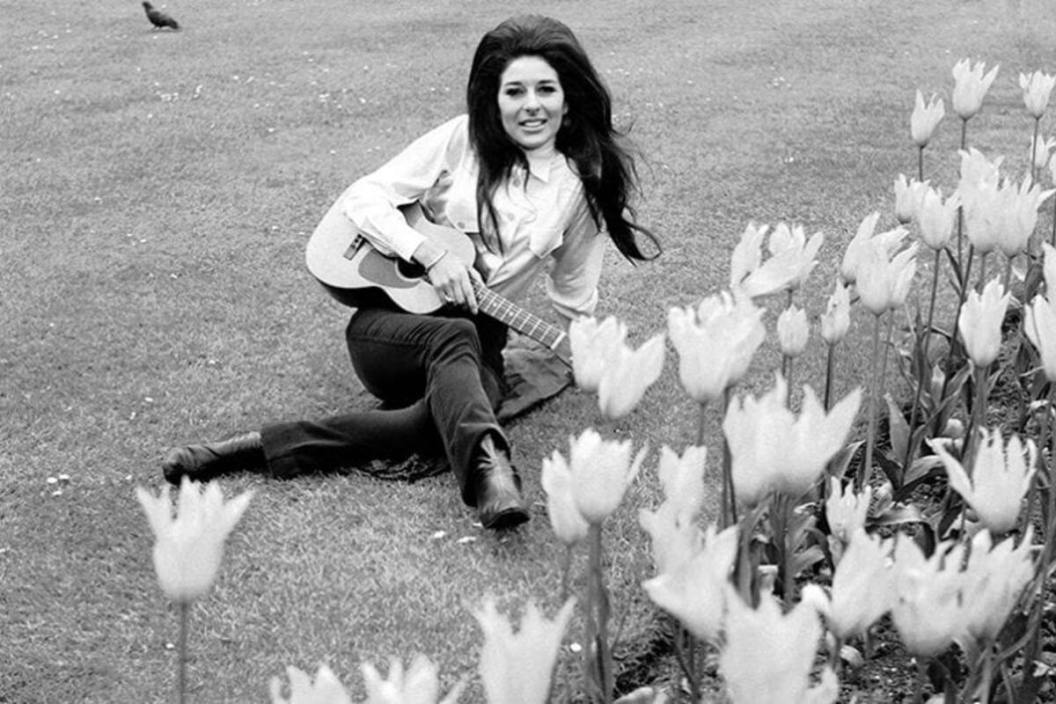Bobbie Gentry captivated the entire country in 1967 with a southern tale to rival William Faulkner. She sang of a Mississippi family sitting around the dinner table. Over black-eyed peas and apple pie, the family discusses the suicide of a local boy named Billie Joe McAllister.
Videos by Wide Open Country
Then Gentry sings the stanza that set millions of music fans' minds whirling:
That nice young preacher, Brother Taylor, dropped by today
Said he'd be pleased to have dinner on Sunday, oh, by the way
He said he saw a girl that looked a lot like you up on Choctaw Ridge
And she and Billie Joe was throwing somethin' off the Tallahatchie Bridge
"Ode to Billie Joe" still haunts listeners who wonder just what Billie Joe McAllister and the song's narrator threw off the Tallahatchie Bridge that summer day and why Billie Joe jumped to his death. But there's another question that has bewildered fans of the singer for decades: What happened to Bobbie Gentry?
Gentry's story is not one of a country star slowly fading into obscurity. The Mississippi singer left the music business when she was at the height of success. Gentry had a successful Las Vegas residency and was the host of her own CBS variety show, The Bobbie Gentry Happiness Hour.
Then she just stopped performing. No more interviews or recordings. No more television appearances singing about the tragic end of Billie Joe. She never announced plans to retire. She just... stopped.
So who was Bobbie Gentry? And why did she leave fame behind for a reclusive life out of the spotlight? Who is this performer that has inspired generations of female artists?
What Happened to Bobbie Gentry?
Bobbie Gentry was born Roberta Lee Streeter in 1944 in Chickasaw County, Miss. She was raised on her grandparents' farm and became interested in music when her grandmother traded one of the family milk cows for a piano. Young Gentry listened to jazz and blues music out of New Orleans on a battery-powered radio and started picking out melodies on the piano. At the age of 13, she moved to California to live with her mother. She began performing in local clubs, taking the stage name Bobbie Gentry from the 1952 film Ruby Gentry, about a young southern girl born into poverty but determined to make it in high society.
She moved to Los Angeles to enroll in UCLA as a Philosophy major. She supported herself with odd jobs and even modeling work before transferring to Los Angeles Conservatory of Music to work on music. She recorded her first songs, "Stranger in the Mirror" and "Requiem for Love" and performed at various nightclubs until she finally got noticed by Kelly Gordon from Capitol Records and everything changed.
At the age of 22, Gentry recorded "Mississippi Delta," a country-fried homage to her homeland. The b-side to the track was the Gentry-penned "Ode to Billie Joe." The eerie song was an American and European smash hit. The track spent four weeks at number one on the Billboard Hot 100 chart. Gentry's album, Ode to Billie Joe was released by Capitol Records in 1967. It knocked The Beatles' Sgt. Pepper's Lonely Hearts Club Band from its 15-week reign in the No. 1 spot on the Billboard 200. The song even landed her three Grammy Awards, including Best New Artist.
But Gentry was no one-hit wonder. She was the original "Fancy." Twenty years before Reba McEntire had a Top 10 hit with it, Gentry recorded the song about the southern courtesan who wooed her way to a "Georgia mansion and an elegant New York townhouse flat."
Gentry called the song her "strongest statement for women's lib."
She was also a born entertainer. Her sultry, smoky voice and smooth-as-molasses stage presence commanded every room she played, as evidenced in her performance of the swampy cajun number "Niki Hoeky."
Where is Bobbie Gentry Today?
Following the success of her duet album with Glen Campbell, Bobbie Gentry and Glen Campbell, and her 1969 record Touch 'Em With Love, Gentry became one of the most in-demand singer/songwriters on the Vegas circuit.
In 1969, she wed Vegas hotel and casino king Bill Harrah, but the marriage lasted just a few months. She received more acclaim for her 1971 album, Patchwork, also released by Capitol. Gentry later married country singer and comedian Jim Stafford in 1978. The couple settled down on a 120-acre horse farm outside of Memphis. The marriage lasted 11 months, during which Gentry and Stafford had a child, a son named Tyler.
Read More: Bobbie Gentry's Best Songs: A Look Back at the Mysterious Country Star's Career
In the late 1960s, Gentry was able to utilize her star power in Europe to host her own BBC tv show in London. While promoting her second album, The Delta Sweete, Gentry made numerous TV appearances on various shows including those hosted by Glen Campbell Tom Jones and Bobby Darin. The second album wasn't as successful as the first, but it did include "Okolona River Bottom Band" which hit the top 60 on the Billboard charts.
Then in the early 1980s, Bobbie Gentry vanished like a ghost into the southern fog.
Searching for Bobbie Gentry has become an industry in itself. USA Today reporter Billy Watkins wrote that he had been chasing Gentry longer than any other person in his entire journalism career. A quick Google search turns up a "Where On God's Green Earth is Bobbie Gentry?" A Facebook group made up of 170 devoted fans who hope the singer will make another public appearance. Superfans have 'Bobbie Gentry' Google alerts set up so they'll be the first to know if their favorite Delta queen comes out of hiding.
In 2012, BBC Radio 2 produced the documentary Whatever Happened to Bobbie Gentry?, which was narrated by Rosanne Cash.
Last June, a Washington Post reporter tracked Gentry to a $1.5 million house in a gated community about two hours from the site of the infamous Tallahatchie Bridge. (The original bridge collapsed in 1972.) But she had no interest in talking.
Longing for a Comeback
The mystery of where Bobbie went has been solved. But fans and journalists are still searching for that elusive interview, clamoring for some insight into why the singer voluntarily vanished and refuses to talk to the press. According to Tara Murtha, author of the Gentry biography Ode to Billie Joe, it's a pretty straightforward answer. Murtha told the Washington Post she believed Gentry just grew tired of the music business and never really longed for the spotlight. USA Today reported that Gentry was apparently unhappy with the business side of the music industry and grew dissatisfied with what she was getting paid from record companies.
But it's possible that it goes a little deeper than that. Gentry was one of the first female country artists to write and produce her own material, penning all but one song on her debut album. She also produced the entirety of Ode to Billie Joe but never got credit as a producer. Women just didn't get studio credit in the 1970s, Murtha told Wondering Sound in 2014. Was she so sick of not being credited for the work that she grew disillusioned with the music industry as a whole?
READ MORE: How "It Wasn't God Who Made Honky Tonk Angels" Paved the Way for Female Country Artists
Whatever the answer, Bobbie Gentry continues to inspire and captivate. Lucinda Williams, Shelby Lynne and Sheryl Crow have all cited Gentry as an inspiration.
There have been reports that Gentry, now 72, has contacted old acquaintances in the music business, perhaps expressing interest in recording. But she always cancels the appointments. Whatever Gentry has in store, we're all hooked, eagerly waiting for the next story country music's most mysterious singer has to tell.
This story was originally published on October 23, 2017.



